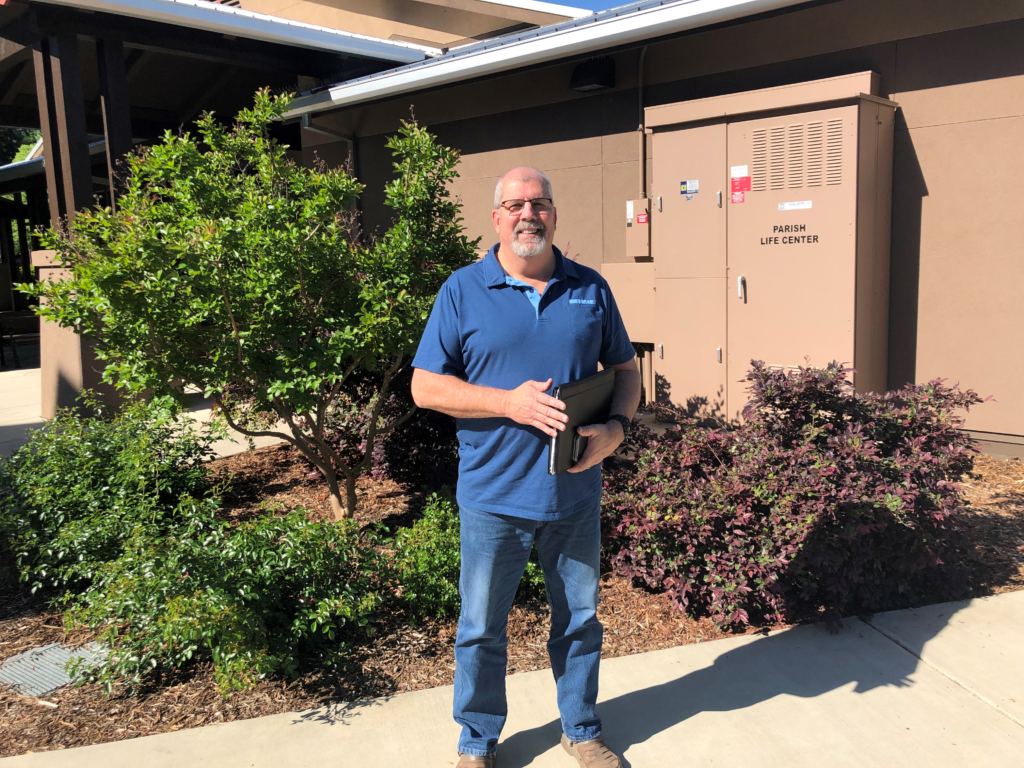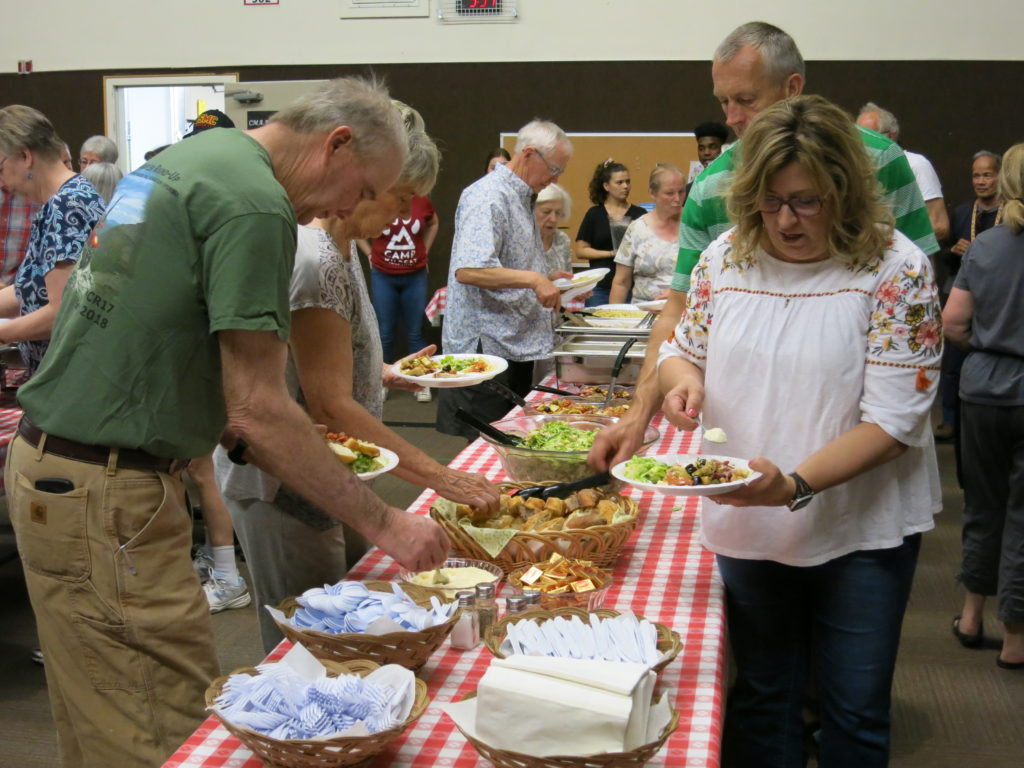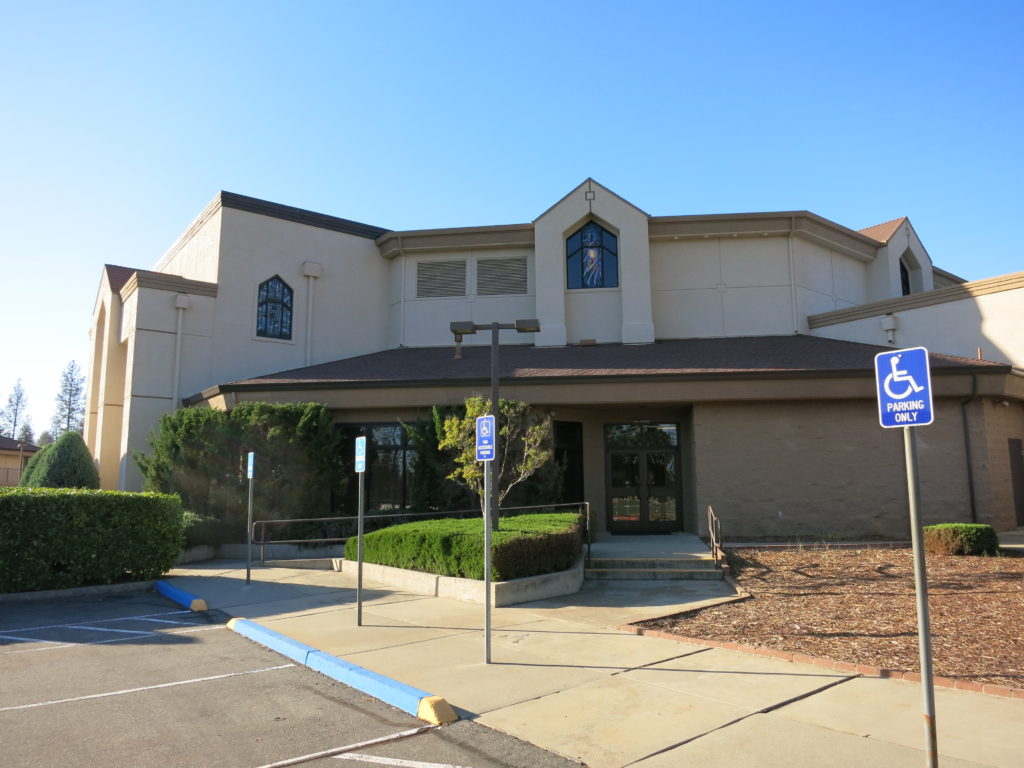Burbank, Calif., the true ganglion of movie studios and a stone’s throw from Hollywood, was near its apotheosis of relevance in the late 1950s. 3:10 to Yuma, which was filmed on the premises, had been released to roaring reception, while Stage 15 served as the backdrop to other classics.
Because of the solid walls of smog surrounding the area, which led to a bevy of asthmatic treatments, a young Tim Bolin, along with his family, left the splashy filmic epicenter for Paradise, a town whose population, at the time, could have trouble stuffing a modern professional basketball arena.
Years later, his father and brother started a construction company, but a supersaturated market forced the family to emigrate to Redding and Sacramento, as well the Bay Area. Even with the temporary lopping of his family tree’s branches, Bolin, in Paradise, still had time for church and ameliorating the lives of those less fortunate.
“I was 29, I had three kids, and made the decision to go into ministry,” said Bolin, whose familial business had, at one time, employed over 150 carpenters over the northern region of the state. “But it wasn’t that hard — my dad and brother supported me 100 percent.”

He left his family in Northern California, headed to the Arden Hills, Minn., a city with an area less than 10 square miles, for ministry school, where he secured his degree after three years. This was merely a rendezvous, as the Bolin band eventually returned to Burbank.
After being a campus pastor who wrote Bible curricula, took kids on mission trips and built a men’s ministry — where he ran a Bible study with 100 to 120 men per week — Bolin elected to watch his kids, who were now on the verge of reveling in full-blown adulthood. Once back in Paradise, Bolin manned his current position of executive pastor at Paradise Alliance Church, one of the few churches that the Camp Fire eluded.
What distinguished the church from the rest of the establishments in Paradise was its mere re-opening, just weeks after Thanksgiving, days before Christmas Eve.
Bolin and the church’s lead pastor met about the possibility of a Christmas Eve service, in an effort to ribbon the displaced with sanctuary. The two felt the need to get off the dime, as they knew the church had electricity and a functioning well system — both of which were coming a dime a dozen in a town devastated.
Members of the Paradise City Council worked with the PAC and surrounding places of worship to contact PG&E, whom could provide temporary natural gas — enough to heat the building. Samaritan’s Purse, a nondenominational evangelical Christian organization that provides spiritual and physical aid to affected people around the world. swooped in and asked to be a part of the re-opening effort. The org’s president and CEO, Franklin Graham, telephoned Michael Odell, one of Bolin’s donation managers, and donated 10,000 pillows.

“{Graham} said, ‘Everybody affected needs to have two pillows,’” Bolin said, who saw over 1,000 people at each of his three Christmas Eve services receive gifts. “Everybody from the fire that came off the ridge, got a $50 gift card.”
There was a surfeit of people on a night where the notion of excess was null and void, and, thanks to the president of Panera Bread, everyone was plated a free meal. Children were in awe over a newly implemented snow machine and toys that were coming from communities six-plus hours away.
With about 60 percent of his congregation strewn across 48 other states (sans Alaska), due to the immediate, geographic swiping of the Camp Fire, Bolin has planned everything from cleanup projects benefiting schools to costless weekly community dinners put on by 15 to 20 volunteers at the PAC.
The prevailing perception is that the fire could’ve easily been avoided, though many aren’t certain who to pillory. Bolin is more sure, as he believes that special interests have bastardized the encompassing Paradise environment.
“We’ve stopped logging, we’ve stopped cleaning forests out,” said Bolin, who thinks a healthy balance could’ve been struck for forest maintenance, which, in turn, would’ve impaired the impact. “This could’ve been preventable — I’ve talked to so many forestry and firefighters, even legislators.”
The secretary of Interior and Secretary of Agriculture, along with state officials and senators, met at the Paradise Alliance Church.
“With our building standing, we have an obligation — and we know that as a church, too,” said Bolin, who has helped open his church’s doors for PID water meetings. “Our building is used almost every week.”
On the morning of Nov. 8, a notification saying there’s a fire in Concow came to Bolin’s attention. He thought nothing of it, and had a meeting at the church, which had served as an evacuation center for previous disasters — such as the near-busting of the Oroville Dam in 2017. After the meeting, a limb from a cedar tree, of which there were none near the church, flew to the nearby ground, which poetically corresponded with a text message of warning from Bolin’s brother, Tim, a member of the city council.

Propane tanks were exploding like bombs in a war zone, as the red skies hung like a canopy. A first responder told Bolin to leave, and promptly hung up on him.
“I looked around — neighbors’ houses are burning,” said Bolin. “And, I said, ‘The first thing we have to do is grab the plans and the permits, because we’re going to have to rebuild.’”
Yvonne, Bolin’s wife, who was around their house, which they had lived in for a mere week prior to the fire’s mayhem, helped her husband grab pictures, computers, blueprints and permit papers. Before heading to the church, Bolin watered down the gutters to ensure leaves wouldn’t catch fire and spread.
The PAC’s maintenance guy, Dave, exhausted every fire extinguisher on the perimeter — as all the water pressure that could’ve helped in theory was disabled — only succumbing to the flames right before a firefighter, in an act of grand heroism, sprayed the side of the building.
Bolin headed south on Skyway, a crucial road into the city, and, from a Walgreen’s parking lot, called his son, Steve, whose wife, Hope, was coming off shoulder surgery and was overseeing the couple’s children. The younger Bolins were safe at a hospital, where firefighters were.
“Businesses that I’d grown up with are going up and burning up, and just seeing the horror of people running, several of the police officers and sheriffs I was talking to direct traffic — asking them if there’s anything I can do to help,” said Bolin, who was resisting tears and acting as that calm, until he heard his family was protected — he then lost it, emotionally.
Thanks to Bolin’s youngest son, Cliff, the immediate Bolin clan had found solace and shelter for the interim in Chico, with Cliff’s friends. The human-to-dog ratio was two-to-one – there were 10 dogs.
Now, Bolin and his wife have fully rebounded, living in their untouched domain in Paradise.
“I believe it’s going to be a great community, once we’re done, because of the planning going on and the restructuring of things,” said Bolin, who has faith in his 10-year outlook of the city, Urban Development Associates (UDA), as well as those Paradise residents committed to their domicile.
The signage dotting Paradise’s main entry road, Skyway, has been donated by outside sources, solely to frame the collective mindset in a tender spot of good graces, one that’s not deterred by resilience and abandoning what was, for many, a showy Northern Californian epicenter replete with strong schools and droves of locally owned businesses. Bolin buttresses the community by pirouetting strongly on his faith, gluing families together and offering largely overlooked but wholly necessary food.
Christmas Eve introduced the vision, while every moment since has been a manifestation of communal tether, reliance on resilience and the anchoring of spirit. These acts have never left Bolin, and, because of that, Bolin will never leave Paradise.